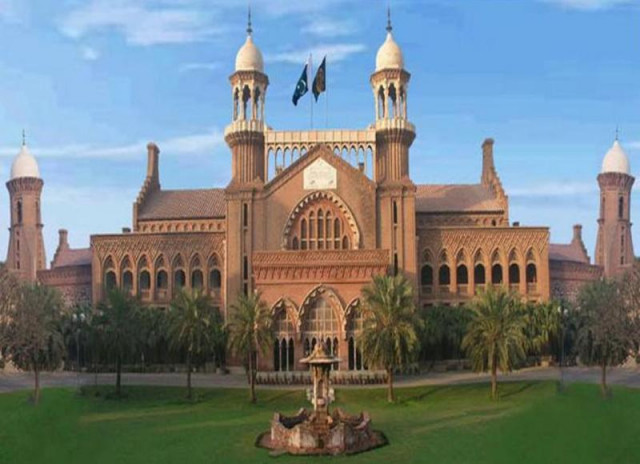LHC to hear challenge to Sharifs conviction
Headed by Justice Shahid Waheed, bench comprises Justice Atir Mahmood and Justice Shahid Jamil Khan

Lahore High Court. PHOTO: EXPRESS
The bench will be headed by Justice Shahid Waheed and comprise Justice Atir Mahmood and Justice Shahid Jamil Khan to hear a petition moved by the Lawyers Foundation for Justice through A K Dogar.
‘Sharif in no mood to mend fences’
This is a reconstituted bench as on August 8, the LHC judge Shams Mehmood Mirza recused himself from an earlier notified three-judge bench owing to ‘some personal reasons’ and sent the same petition back to the LHC chief justice to fix it before any other appropriate bench. Justice Sajid Mehmood Sethi and Justice Mujahid Mustaqeem Ahmed were the other members of the earlier bench.
In the petition, Dogar questioned the NAB Ordinance 1999 and functioning of the courts under it.
He said NAB court which convicted the Sharifs had no jurisdiction to decide the matter as the law under which it had been functioning had lapsed long ago. He requested the court to suspend operation of the accountability court’s decision as the court had been functioning under a non-extant law.
He said former military dictator General Pervez Musharraf promulgated the NAB ordinance to arrest politicians. Musharraf took the charge in Oct 1999 while the NAB law came into being in Nov 1999, just one month later.
He said the NAB Ordinance 1999 contends that the ordinance was promulgated by a military dictator under Provisional Constitutional Order (PCO) No 1 and order No 9 of 1999. He argued that under Article 270-AA of the Constitution through the 18th amendment, the PCO No1 of 1999 was declared without lawful authority and of no legal effect.
'Caged lion of Punjab': the fall of Pakistan's ex-PM Sharif
Order No 9, he said, was promulgated only to amend the PCO No 1 of 1999 with the insertion of section 5A (1) in it to the effect that limitation of 120 days prescribed under Article 89 of the Constitution to any ordinance by the president will not be applicable to the laws made under PCO No 1 of 1999.
The lawyer contended that as the PCO No 1 was declared without lawful authority and of no legal effect, the amendments in it made under order No 9 of 1999 would also lapse and therefore, the limitation period of 120 days prescribed under Article 89 would be applicable to the NAB ordinance.
He said certain laws which were still enforced, shall continue to remain enforced unless amended by the competent legislation under sub-article 2 of Article 270-AA of the Constitution.
Claiming that the NAB ordinance has ceased to be the law and become non-existent and a dead letter, he requested the court to set aside all those proceedings being carried out by the NAB courts under the ordinance.



















COMMENTS
Comments are moderated and generally will be posted if they are on-topic and not abusive.
For more information, please see our Comments FAQ